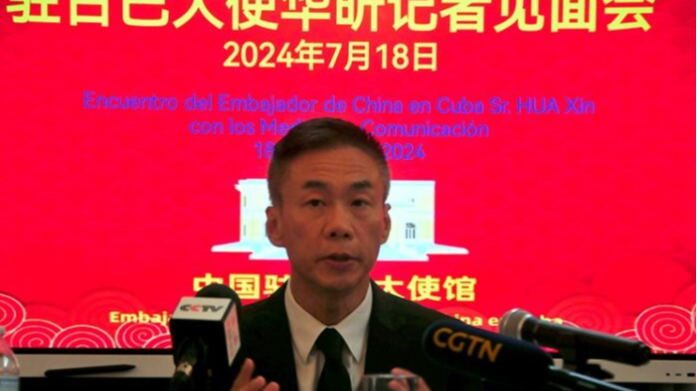
Hua Xin highlighted the role of the Communist Party at the forefront of the destinies of the two countries.
Photo: File/trabajadores.cu
Havana, August 7 (RHC) -- The Chinese ambassador to Cuba, Hua Xin, says that his country and Cuba are betting on scientific and technological innovation, while strengthening their ties in that area.
During the theoretical event held in the Cuban capital on the modernization of the Asian Giant, the diplomat asserted that both nations “can learn from each other and complement their strengths in the field of science and technology.”
He said that he had exchanges with directors of the Center for Genetic Engineering and Biotechnology, and “deeply admired the achievements here to confront the blockade.”
He recalled that Chinese President Xi Jinping personally presented the People's Republic of China International Cooperation in Science and Technology Award this year to Cuban neuroscientist Pedro Valdés, who works at the Chinese-Cuban Joint Laboratory for Neurotechnology.
“This recognition has become a good story of Sino-Cuban cooperation in scientific and technological innovation,” Xin said when speaking to experts from the Center for International Policy Research (CIPI) and the China Institute of International Studies (CIIS).
He also recalled that both nations are celebrating this year the 75th anniversary of the founding of New China, the 65th anniversary of the triumph of the Cuban Revolution and the tenth anniversary of President Xi Jinping's visit to Cuba.
The ambassador also highlighted the construction of socialism in both countries and the role of the Communist Party at the forefront of the destiny of their peoples.
She also said that China and Cuba are committed to building socialism with their own characteristics and making greater contributions to promoting the cause of socialism in the world and the unity and development of the Global South.
During the meeting, held at the Royal Habana Hotel, Hua Xin reaffirmed that her country's development strategy is based on "science and education; strengthening through talent; improving the new type of national development system and increasing the overall effectiveness of the national innovation system." (Source: Prensa Latina)

